A Short Treatise Inviting the Reader to Discover the Subtle Art of Go 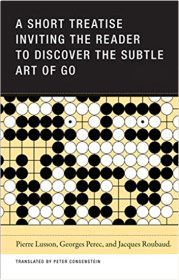 Three by Perec (Verba Mundi) 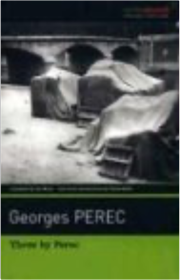 "53 Days" 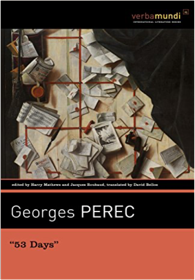 At the time of his death, Perec was hard at work on this absorbing, allusive, and playful literary thriller. "53 Days" is the ultimate detective story: the narrator, a French colonial teacher, is hot on the trail of famous crime writer Robert Serval, who has mysteriously vanished. Perec lures the reader into a labyrinth of mirror-stories—which are mirrored in turn by Perec's own riddling drafts and notes for the end of "53 Days", reconstructed here by fellow Oulipians Harry Mathews and Jacques Roubaud. "53 Days" is a supremely satisfying, engrossing, and truly original mystery. The Art of Asking Your Boss for a Raise 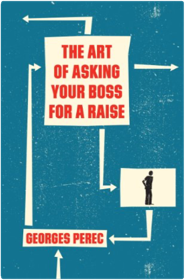 Never previously published, Georges Perec’s The Art of Asking Your Boss for a Raise is a hilarious account of an employee losing his identity—and possibly his sanity—as he tries to put on the most acceptable face for the corporate world, with its rigid hierarchies and hostility to ideas and innovation. If he follows a certain course of action, so this logic goes, he will succeed—but, in accepting these conditions, are his attempts to challenge his world of work doomed from the outset? Neurotic and pessimistic, yet endearing, comic and never less than entertaining, Perec’s Woody Allen-esque underling presents an acute and penetrating vision of the world of office work, as pertinent today as it was when it was written in 1968. An Attempt at Exhausting a Place in Paris 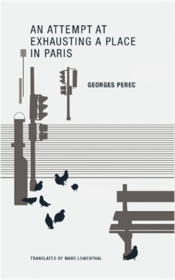 Brief Notes on the Art and Manner of Arranging One's Books 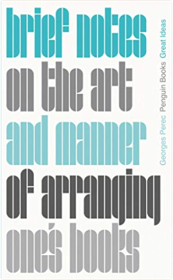 Georges Perec and the Oulipo: Winter Journeys 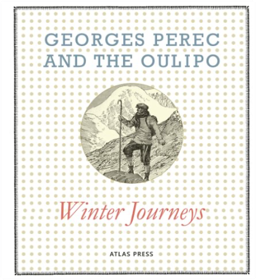 I Remember 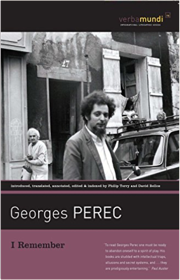 Consisting of 480 numbered statements, all beginning identically with I remember, and all limited to pieces of public knowledge brand names and folk wisdom, actors and illnesses, places and things ( I remember: When parents drink, children tipple ; I remember Hermès handbags, with their tiny padlocks ; I remember myxomatosis ) the book represents a secret key to the world of Perec s fiction. As critic, translator, and Perec biographer David Bellos notes in his introduction to this edition, since its original publication, It s hardly possible to utter the words je me souviens in French these days without committing a literary allusion. As playful and puzzling as the best of Perec s novels, I Remember began as a simple writing exercise, and grew into an expansive, exhilarating work of art: the image of one unmistakable and irreplaceable life, shaped from the material of our collective past. For this edition, Perec s 480 memories, sometimes obvious, sometimes obscure, have been elucidated and explained by David Bellos. This book is manifestly autobiographical and also obeys a rigid (but not difficult) formal constraint. It is also one of the oddest works of literature ever written. Published in 1978 shortly after Perec's masterpiece, Life A User's Manual, won the Médicis Prize, I Remember is not a play, a poem, or a novel, and it's not a memoir in the ordinary sense either. La Boutique Obscure: 124 Dreams 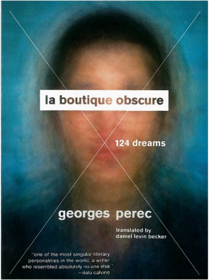 In La Boutique Obscure Perec once again revolutionized literary form, creating the world’s first “nocturnal autobiography.” From 1968 until 1972—the period when he wrote his most well-known works—the beloved French stylist recorded his dreams. But as you might expect, his approach was far from orthodox. Avoiding the hazy psychoanalysis of most dream journals, he challenged himself to translate his visions and subconscious churnings directly into prose. In laying down the nonsensical leaps of the imagination, he finds new ways to express the texture and ambiguity of dreams—those qualities that prove so elusive. Beyond capturing a universal experience for the first time and being a fine document of literary invention, La Boutique Obscure contains the seeds of some of Perec’s most famous books. It is also an intimate portrait of one of the great innovators of modern literature. Species of Spaces and Other Pieces 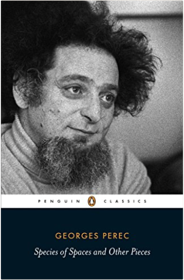 Georges Perec, author of the highly acclaimed Life: A User’s Manual, was only forty-six when he died in 1982. Despite a tragic childhood, during which his mother was deported to Auschwitz, Perec produced some of the most entertaining essays of the age. His literary output was deliberately varied in form and style and this generous selection of Perec’s non-fictional work, the first to appear in English, demonstrates his characteristic lightness of touch, wry humor, and accessibility. As he contemplates the many ways in which we occupy the space around us, as he depicts the commonplace items with which we are familiar in a startling, engrossing way, as he recounts his psychoanalysis while remaining reticent about his feelings or depicts the Paris of his childhood without a trace of sentimentality, we become aware that we are in the presence of a remarkable, virtuoso writer. Things: A Story of the Sixties; A Man Asleep (Verba Mundi) (Verba Mundi (Paperback)) 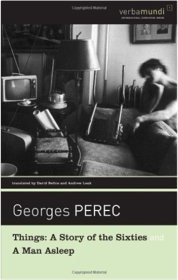 Jerome and Sylvie, the young, upwardly mobile couple in Things, lust for the good life. "They wanted life's enjoyment, but all around them enjoyment was equated with ownership." Surrounded by Paris's tantalizing exclusive boutiques, they exist in a paralyzing vacuum of frustration, caught between the fantasy of "the film they would have liked to live" and the reality of life's daily mundanities. In direct contrast with Jerome and Sylvie's cravings, the nameless student in A Man Asleep attempts to purify himself entirely of material desires and ambition. He longs "to want nothing. Just to wait, until there is nothing left to wait for. Just to wander, and to sleep." Yearning to exist on neutral ground as "a blessed parenthesis," he discovers that this wish is by its very nature a defeat. Accessible, sobering, and deeply involving, each novel distills Perec's unerring grasp of the human condition as well as displaying his rare comic talent. His generosity of observation is both detached and compassionate. Thoughts Of Sorts 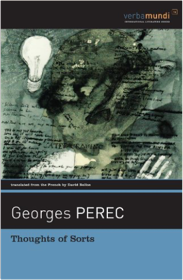 A Void 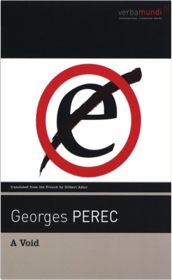 W, or the Memory of Childhood 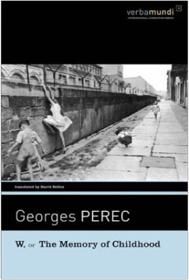 Guaranteed to send shock waves through the literary community, Perec's W tells two parallel stories. The first is autobiographical, describing the author's wartime boyhood. The second tale, denser, more disturbing, more horrifying, is the allegorical story of W, a mythical island off Tierra del Fuego governed by the thrall of the Olympic "ideal," where losers are tortured and winners held in temporary idolatry. As the reader soon discovers, W is a place where "it is more important to be lucky than to be deserving," and "you have to fight to live...[with] no recourse, no mercy, no salvation, not even any hope that time will sort things out." Here, sport is glorified and victors honored, but athletes are vilified, losers executed, rape common, stealing encouraged and violence a fact of life. Perec's interpretive vision of the Holocaust forces us to ask the question central to our time: How did this happen before our eyes? How did we look at those "shells of skin and bone, ashen faced, with their backs permanently bent, their eyes full of panic and their suppurating sores"? How did this happen, not on W, but before millions of spectators, some horrified, some cheering, some indifferent, but all present at the games watching the events of that grisly arena? This book, a devastating indictment of passivity and the psychology of crowds, will find its place beside such great works as Milan Kundera's The Book of Laughter and Forgetting and Primo Levi's The Periodic Table and If Not Now, When? |


Delicious Library
Collection Total:
3,640 Items
3,640 Items
Last Updated:
Nov 2, 2025
Nov 2, 2025


 Made with Delicious Library
Made with Delicious Library